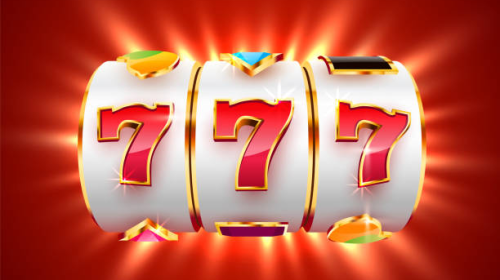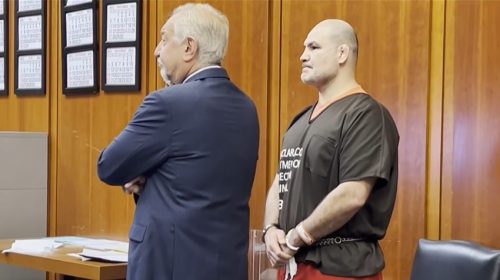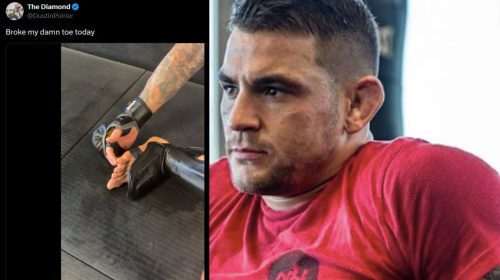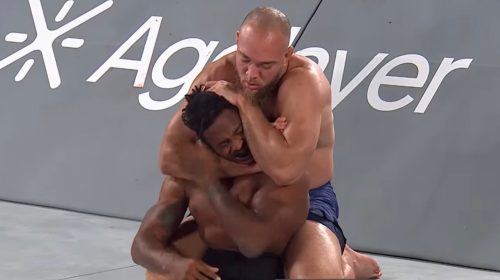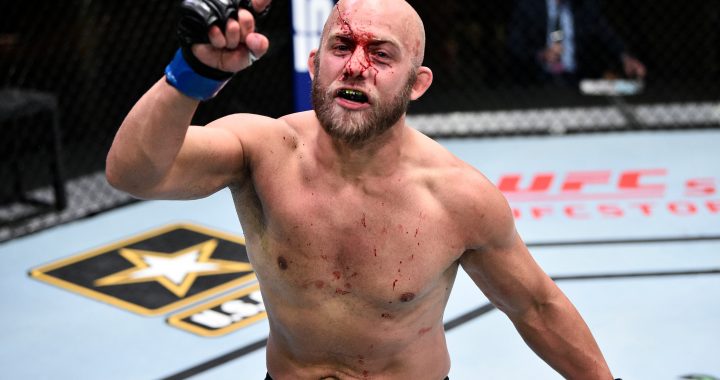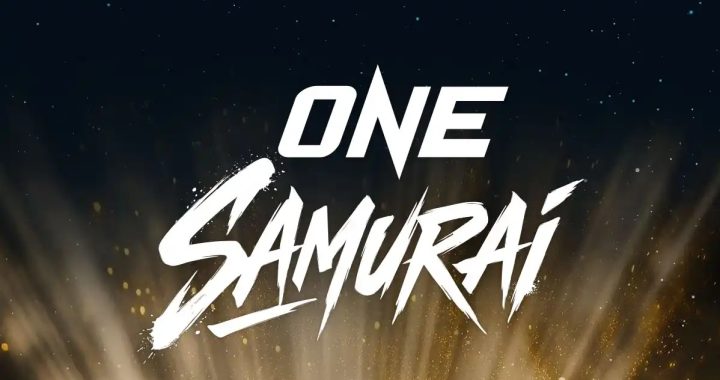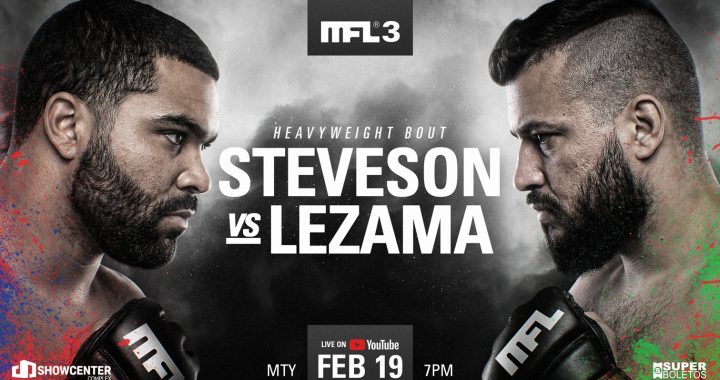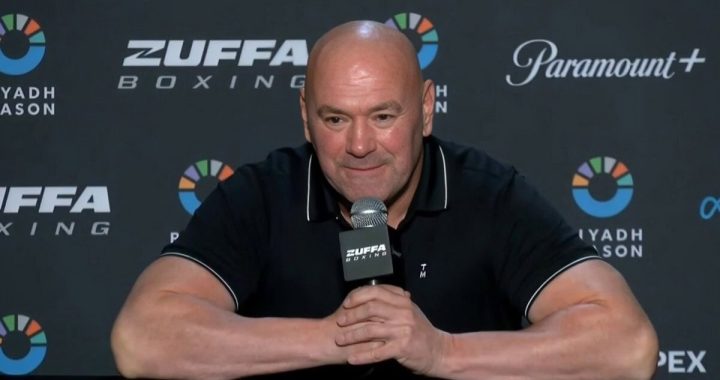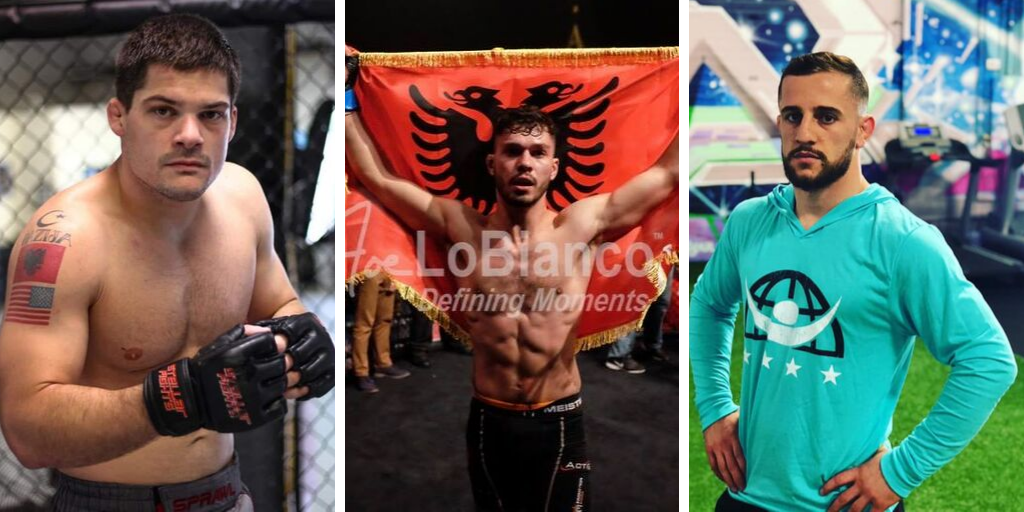
From left - Lirim "Lenny" Rufati, Dennis Buzukja, and Vilson Ndregjoni
Albanians unite at Ring of Combat 69 on UFC Fight Pass
Dennis Buzukja and Lirim “Lenny” Rufati feel connected to Albanian native, Vilson Ndregjoni.
The three are in the beginning stages of their professional careers and are all fighting at Ring of Combat 69 on Friday, Sept. 13. There is more to the trio than just fighting on the same card inside the Tropicana Casino and Resort in Atlantic City, New Jersey.
They are all Albanian.
“I take just as much pride in being Albanian as I do being an American,” Buzukja said. “Just knowing we are all Albanian, we just instantly connect. I’m really proud to have them two on the card to represent our country and people.”
Buzukja and Rufati are both American born and their parents are Albanian immigrants. Ndegrjoni is from Albania’s capital of Tirana and currently resides in Hackensack, New Jersey.
Buzukja and Rufati may of not been born in Albania, but their ties to the country are true.
Buzukja was born in Staten Island and moved in with UFC lightweight and teammate, Al Iaquinta to Long Island over a year ago. Rufati was born in Brooklyn, New York, but moved to Cherry Hill, New Jersey during middle school.
Rufati currently lives in Wisconsin after moving about four years ago.
All three will be under the same roof on Friday night. There’s an estimated 400 people coming to support all three fighters, mostly Albanians according to Rufati.
“Albanians are very proud people, small country, so anytime they have an entertainer like a singer they really go hard, it’s absurd,” Rufati said. “They love boxing, but they also love MMA now.”
Coming to America
Buzukja was born in the United States two weeks after his mother, Arta Buzukja, who came to the country from Albania in 1997. His father, Nush Buzukja came a few months later to join his family in their new home.
The two left Albania just five years after the country escaped the communist regime in March 1992. Buzukja is motivated everyday by remembering where his family came from.
Both of his parents received two pounds each of meat, milk and bread every week for their entire family. They lived in a concrete building with no heating system and showered outside.
His father was 25 and his mother was 24 when they came to America. His dad started working in construction, earning $40 a day. Both of his parents did not know how to speak English.
“Thank God for my mom and dad always having food on the plate for me, but it was tough growing up,” Buzukja said. “If they crossed an ocean for me to have a better life then I got to go to war in the cage to pay them back. That’s where my motivation is.”
Buzukja learned Albanian before he learned English. He even helped teach his parents English, who were also new to it at the time.
Being raised Albanian in America is something Buzukja remembers clearly. He didn’t know many of the latest American trends in music, clothes and movies.
“Growing up just knowing Albanian culture, I kind of felt secluded from the rest of society,” Buzukja said. “I think I grew up more Albanian than American in my earlier years. Then as I grew up, I became more familiar with everything.”
A proud Albanian
Rufati’s parents came to Brooklyn, New York from Albania in 1983.
His father, Jonuz Rufati, is from Macedonia and his late mother, Razije Rufati, was from Montenegro. Both countries border Albania, but have a high percentage of Albanians living there.
“My parents used to take me there every summer, so that’s how I learned the language when I was a kid,” Rufati said. “Our ethnicity is Albanian, they like that Albanian tag.”
His parents decided to move to America to have a better life.
Rufati also served four years in the United State Army. He wanted to protect the country his parents came to.
“I tried to make up for the lack of American in me,” Rufati said. “Most people are too scared to sign up, I did it for four years.”
A country behind you
Buzukja and Rufati know what it is like to have an Albanian crowd behind them.
Both earned unanimous decision victories at Ring of Combat 67 on Feb. 22. Rufati recalls the night quite well.
“There were red and black double-headed eagle flags all over the place,” Rufati said. “After the fight they cheered Dennis’ name, he sold a lot more tickets. Then they saw me and were like ‘Oh, he’s one of us,’ then they cheered my name, it was nuts.”
The country’s flag features a double-headed eagle in the center, representing the sovereign state of Albania. The red means bravery, strength and valor.
In a way, the flag represents their fighting style. They pride themselves on never backing down from a fight. It’s a statement similar shared by fighters of different ethnicities.
In the case of these three, their records are all the proof they need.
Ilir Latifi is the only Albanian fighter currently on the UFC roster. Whether at the highest stage or at a regional promotion, an Albanian fighter is an Albanian fighter according to Buzukja.
“I’d say our hard heads make us different, we are so gritty and tough,” Buzukja said. “I think we are a little more gritty than other fighters. It’s kind of that mountain-man mentality.”
A night to remember
The Albanian pride will be on full display in Atlantic City. Buzukja [2-1] and Rufati [3-0] both will compete for the fourth time as a professionals.
Rufati takes on Troy Green [1-0] in a welterweight bout and Buzukja faces Rodrigo Vera [8-1] at featherweight. Ndregjoni fights Andrew Johnson [0-1] in the featherweight division as well.
“This is going to be nuts because there’s three of us,” Rufati said.
Both fighters have a home in the United States. Ndregjoni is also calling America home as he climbs up the MMA ranks.
Buzukja and Rufati haven’t forgotten where they came from. In fact, they cherish it.
Buzukja always brings the Albanian flag into all of his fights. He carries the flag a similar way to how all three show their Albanian pride; proudly.
It’s a way to honor their families who brought them here. It’s a chance to represent Albania.
“We’re all connected, everyone knows each other in the Albanian community,” Buzukja said. “If they [my parents] can do that, then this is easy.”













